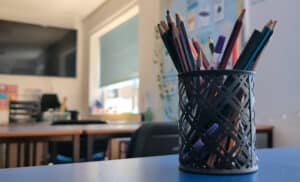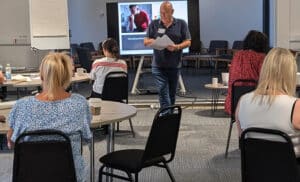Designation & Pupil Profile
Who we support, how placements are agreed, and what you can expect from a values-led SEMH education.
At Sallygate School (part of Channels & Choices) we specialise in helping children with Social, Emotional and Mental Health (SEMH) needs to achieve, belong and thrive through calm routines, ambitious teaching and therapeutic support.
Our Designation
Sallygate is an independent special school with a specialist focus on SEMH. We provide a structured, trauma-informed environment in which pupils can learn well, feel safe and build the skills to succeed—academically, socially and emotionally.
We work with local authorities to offer day placements, and—through Channels & Choices—support children living in a range of circumstances, including foster care and residential care, as well as pupils living with their families.
- Ages: 5–16
- Key Stages: KS1 to KS4
- Pathways: GCSEs, Functional Skills and vocational qualifications tailored to individual starting points and aspirations.
Who We Support (profile at a glance)
We are typically the right setting for children and young people who:
- Have an Education, Health and Care Plan (EHCP) with SEMH identified as a primary need (or significant SEMH profile alongside other needs).
- Would benefit from small classes, clear routines and consistent boundaries that reduce anxiety and support regulation.
- Experience barriers such as anxiety, low attendance histories, dysregulated behaviour, difficulties with peer relationships, or challenges with self-esteem and confidence.
- Are ready to engage with a restorative, relational approach where expectations are taught explicitly and success is recognised frequently.
- Need practical therapeutic supports (e.g., coaching in regulation strategies, key adult check-ins, structured social times) embedded into the school day.
Presentation can include: difficulties with emotional regulation, low tolerance of frustration, school avoidance, past exclusions, heightened sensitivity to change, reduced confidence with literacy or numeracy, or gaps arising from disrupted education.
Co-Occurring Needs We Commonly Support
Many pupils have needs alongside SEMH. We regularly support, for example:
- Neurodiversity: ADHD, Autistic pupils (including social communication differences and sensory needs).
- Speech, Language & Communication Needs (SLCN).
- Specific learning differences: dyslexia, dyscalculia (with targeted interventions).
- Attachment and developmental trauma histories.
- Mild/moderate mental health needs supported through routine, relationships and reasonable adjustments, with signposting to external clinical services where appropriate.
Where additional needs are present, we make reasonable adjustments and work with families and professionals to personalise support.
Admission Pathways
Admission Pathways
Local Authority/Professional Referrals
- EHCP and recent reports shared securely.
- Discussion of need, risk assessment, proposed outcomes and transport arrangements.
- Visit/observation where helpful; agreement of trial or start date.
Family Enquiries
- Families are welcome to visit and speak with staff. Admissions are ordinarily made through the Local Authority; we will guide you through the process and liaise with professionals.
What we ask for (documents): EHCP (latest), annual review minutes, recent educational psychology/speech & language reports (if available), behaviour/risk assessments, safeguarding chronology (as appropriate), attendance records and attainment data.

Class Sizes, Staffing & Daily Structure
- Small classes (typically 6–8) with a teacher and learning mentors.
- Predictable day: calm start/Do Now, explicit instruction, purposeful breaks, guided practice and reflection.
- Positive recognition: values-linked systems (e.g., Class Dojo), restorative conversations, and planned regulation opportunities.

Therapeutic & SEMH Support
- Relational practice: key adult check-ins, co-regulation, solution-focused conversations.
- Targeted interventions: literacy/numeracy catch-up, social communication groups, executive function coaching.
- Partnerships: liaison with external therapists/clinicians commissioned by the LA or carers as part of a child’s plan.
- Training: staff are trained in trauma-informed, de-escalation and restorative approaches.

Curriculum, Accreditation & Outcomes
- Core offer: English, Mathematics, Science, PSHE/RSHE, PE, ICT/digital literacy.
- Broadened offer: Humanities, Arts, Forest School, vocational strands in KS4.
- Accreditation: GCSEs, Functional Skills and vocational qualifications matched to the pupil’s pathway.
- Personal development: independence, careers education, work-related learning, and life skills.

Safeguarding, Welfare & Attendance
- Safeguarding first: robust procedures, prompt communication and clear record-keeping.
- Attendance support: collaborative plans to rebuild routine and confidence; recognition of improved patterns.
- Wellbeing: safe spaces, social skills coaching and supervised social times that emphasise inclusion and respect.

Working with Parents, Carers & Professionals
- Parents & carers as partners: shared language and strategies; regular updates; quick contact if things change.
- Multi-agency: we align with social care, fostering/residential teams, virtual schools and clinical partners.
- Clear reporting: concise review notes linked to agreed targets and outcomes.

Preparing for Next Steps (Transitions)
- Internal transitions: structured class or timetable changes with rehearsal and visual supports.
- Next phase: carefully planned moves into college, training or employment, with supported visits and information sharing.
- Celebration of success: recognising qualifications, attendance gains, independence milestones and contribution to the school community.

